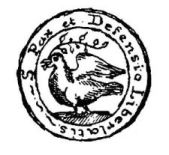
3rd Biennial Ideas in Politics Conference
co-organized with Institute of Political Studies FSV UK and Anglo-American University
Prague – November 3rd – 4th , 2017
The current surge of political populism across the Western world may be interpreted not only as a sign of the collapse of the post-Cold War (neo-)liberal consensus but also as a symptom of a deeper crisis of representative democracy itself. This development invites us as political theorists and historians of political thought alike to reflect upon the intellectual foundations of liberal democracy as well as various alternative conceptualizations of free and self-governing political regime including the important, albeit for a long time somewhat neglected, tradition of republican political thought.
The present conference aims to bring together political philosophers, political theorists, intellectual historians as well as other scholars interested in republicanism, citizenship or constitutionalism to discuss the role of republican ideas in the history of political thought, as well as the various strands of the current (neo-)republican political theory. Such discussion should help to elucidate the roots of the current crisis of democracy and explore the potential of republican political theory to tackle this crisis.
The conference is organised by the the Institute of Political Studies at the Faculty of Social Sciences, Charles University in cooperation with the School of International Relations and Diplomacy, Anglo-American University in Prague and the Centre for Political Philosophy, Ethics and Religion at Charles University.
Keynote speakers
Richard Bellamy (University College London & European University Institute)
Christopher Kelly (Boston College)
Philip Pettit (Princeton University & Australian National University)
Call for Papers is available here. Proposals for papers and panels can be submitted here by June 10th, 2017.

